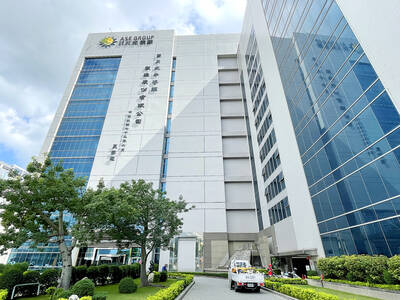Ruling lawmakers yesterday challenged the Ministry of Finance to suspend securities transaction, inheritance and gift taxes in an attempt to invigorate the stock market and turn Taiwan into a regional financial hub.
Chinese Nationalist Party (KMT) Legislator Lu Shiow-yen (盧秀燕) said that she and other colleagues were drafting a bill that would authorize the ministry to scrap the securities transaction levy for up to a year to encourage investors to buy local shares.
Lu said her bill would be more effective than the Cabinet’s measure in shoring up the TAIEX.
On Sept. 10, the Cabinet proposed halving the tax from the current 0.3 percent to 0.15 percent for six months, starting next month, after the benchmark index slumped for an entire week.
During a meeting of the legislature’s Finance Committee, Lu appealed to Minister of Finance Lee Sush-der (李述德).
“The ministry should demonstrate more boldness and accept our bill instead,” Lu said.
Sun Ta-chien (孫大千), another KMT lawmaker, said the ministry should consider abrogating inheritance and gift taxes altogether to be competitive with Hong Kong and Singapore.
Sun said he doubted Taiwan could successfully lure foreign capital if it keeps its inheritance and gift taxes after Hong Kong and Singapore axed theirs.
In related news, the minister said that state-owned banks hold about NT$10 billion (US$312 million) in bonds and other investment products related to the financially beleaguered Lehman Brothers Holdings.

EXPANSION: The investment came as ASE in July told investors it would accelerate capacity growth to mitigate supply issues, and would boost spending by 16 percent ASE Technology Holding Co (ASE, 日月光投控), the world’s biggest chip assembly and testing service provider, yesterday said it is investing NT$17.6 billion (US$578.6 million) to build a new advanced chip packaging facility in Kaohsiung to cope with fast-growing demand from artificial intelligence (AI), high-performance-computing (HPC) and automotive applications. The new fab, called K18B, is to commence operation in the first quarter of 2028, offering chip-on-wafer-on-substrate (CoWoS) chip packaging and final testing services, ASE said in a statement. The fab is to create 2,000 new jobs upon its completion, ASE said. A wide spectrum of system-level chip packaging technologies would be available at

Taiwan’s foreign exchange reserves hit a record high at the end of last month, surpassing the US$600 billion mark for the first time, the central bank said yesterday. Last month, the country’s foreign exchange reserves rose US$5.51 billion from a month earlier to reach US$602.94 billion due to an increase in returns from the central bank’s portfolio management, the movement of other foreign currencies in the portfolio against the US dollar and the bank’s efforts to smooth the volatility of the New Taiwan dollar. Department of Foreign Exchange Director-General Eugene Tsai (蔡炯民)said a rate cut cycle launched by the US Federal Reserve

HEAVYWEIGHT: The TAIEX ended up 382.67 points, with about 280 of those points contributed by TSMC shares alone, which rose 2.56 percent to close at NT$1,400 Shares in Taiwan broke records at the end of yesterday’s session after contract chipmaker Taiwan Semiconductor Manufacturing Co (TSMC, 台積電) hit a fresh closing-high amid enthusiasm toward artificial intelligence (AI) development, dealers said. The TAIEX ended up 382.67 points, or 1.45 percent, at the day’s high of 26,761.06. Turnover totaled NT$463.09 billion (US$15.22 billion). “The local main board has repeatedly hit new closing highs in the past few sessions as investors continued to embrace high hopes about AI applications, taking cues from a strong showing in shares of US-based AI chip designer Nvidia Corp,” Hua Nan Securities Co (華南永昌證券) analyst Kevin Su

Nvidia Corp’s major server production partner Hon Hai Precision Industry Co (鴻海精密) reported 10.99 percent year-on-year growth in quarterly sales, signaling healthy demand for artificial intelligence (AI) infrastructure. Revenue totaled NT$2.06 trillion (US$67.72 billion) in the last quarter, in line with analysts’ projections, a company statement said. On a quarterly basis, revenue was up 14.47 percent. Hon Hai’s businesses cover four primary product segments: cloud and networking, smart consumer electronics, computing, and components and other products. Last quarter, “cloud and networking products delivered strong growth, components and other products demonstrated significant growth, while smart consumer electronics and computing products slightly declined,” compared with the